Malnutrition and malaria are common in remote communities in Angola, especially during peaks of drought and heavy rain. Women and their children are most affected. For the last year, Doctors Without Borders/Médecins Sans Frontières (MSF) has collaborated with local health authorities to reduce the burden of these diseases in the provinces of Huíla and Benguela.
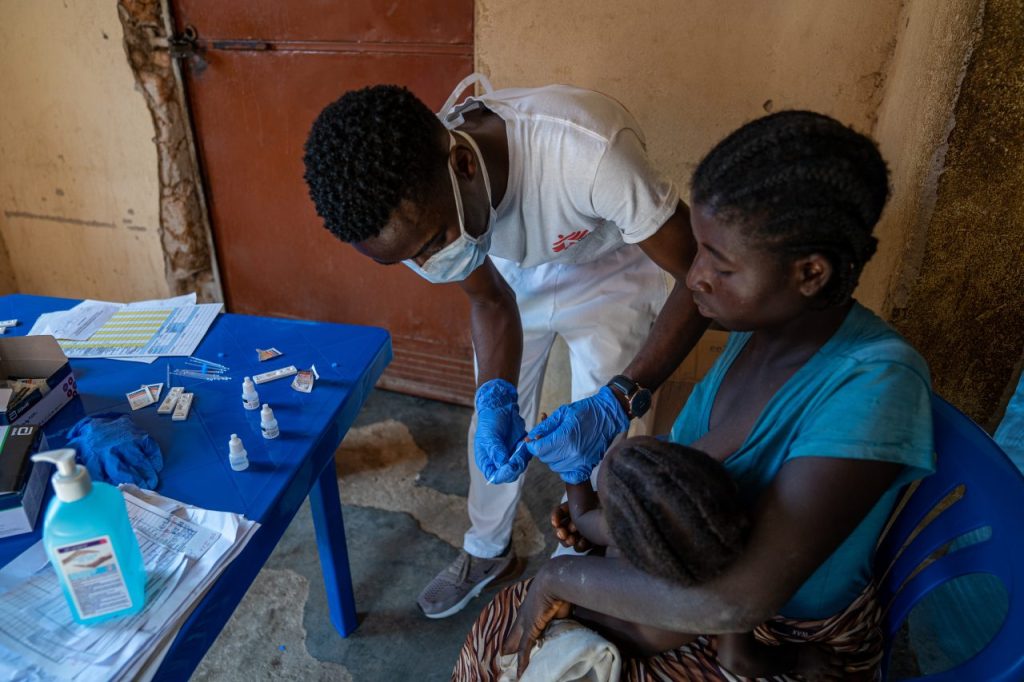
“It’s hard to get to the health post, it takes me two hours walking,” said Domingas Luciana after a consultation for her daughter, Florença, at a mobile clinic run by Doctors Without Borders/Médecins Sans Frontières (MSF) in Camassissa community, a remote area of southwestern Angola’s Huíla province. “[My daughter] was born very skinny and wouldn’t get better,” said Luciana.
Florença was diagnosed with severe acute malnutrition and malaria, so she was enrolled in MSF’s outpatient malnutrition programme at the local hospital and given medications for malaria. In just three weeks, her health significantly improved. “Since I have been taking her to this mobile clinic and to the hospital for follow up [care], Florença has been getting better. I get very happy seeing that my baby has recovered.”
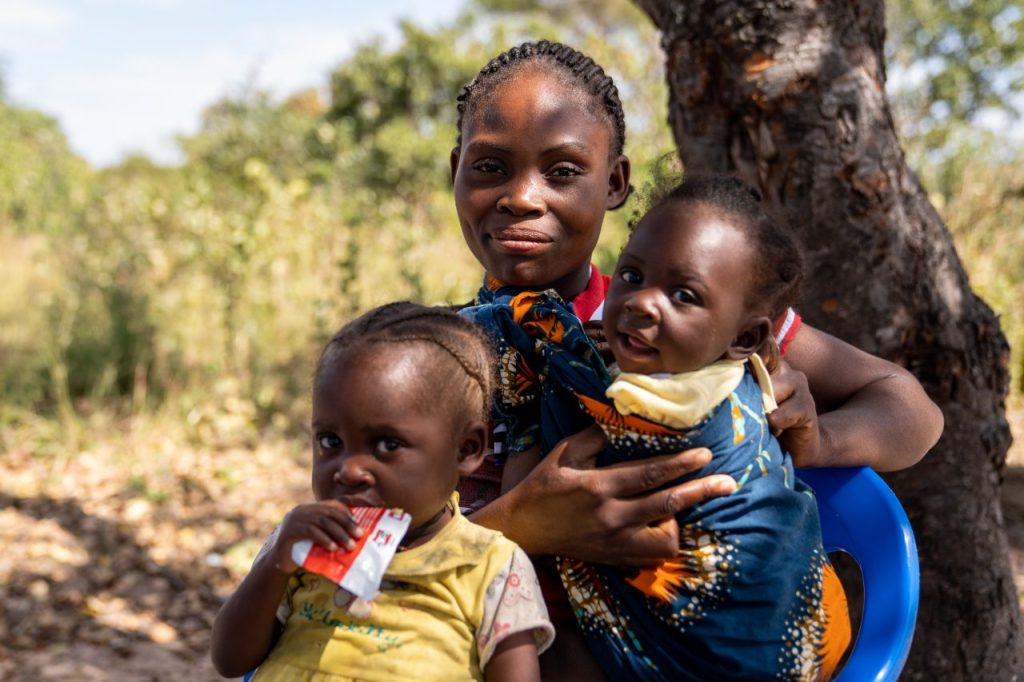
Reaching mothers and their children in remote communities
It’s common for children to have both malnutrition and malaria at the same time. Malaria, the deadly mosquito-borne disease, is prevalent in Angola and was diagnosed in 80 percent of the more than 29,800 medical consultations MSF provided between February and June, 2023, in Huíla province’s Chipindo and Cuvango municipalities.
While the disease can be fatal if not treated —particularly in young children— in some areas of Huíla, timely diagnosis and treatment is challenging. “A lot of communities here live very far from a health facility,” said Isabel Severino, MSF health promotion and community engagement supervisor in Cuvango.
To reach people who live too far from health facilities, MSF teams conducted mobile clinics and trained community health workers to treat mild cases of malaria and other diseases in their communities and identify children that need additional care at one of the 17 health structures supported by MSF.
“Usually, women [come to] me because they’re the ones taking care of the kids. I take care of their kids like I take care of mine,” said Joana Mandavela, a community health worker from Cuvango.
MSF also supported a referral system with motorbikes, known locally as “kaleluias”, to transport mothers and their children to health facilities. This addressed one of the hurdles many women faced to access health care. During the time it was operating, the referral system transferred 300 patients to reach medical care.
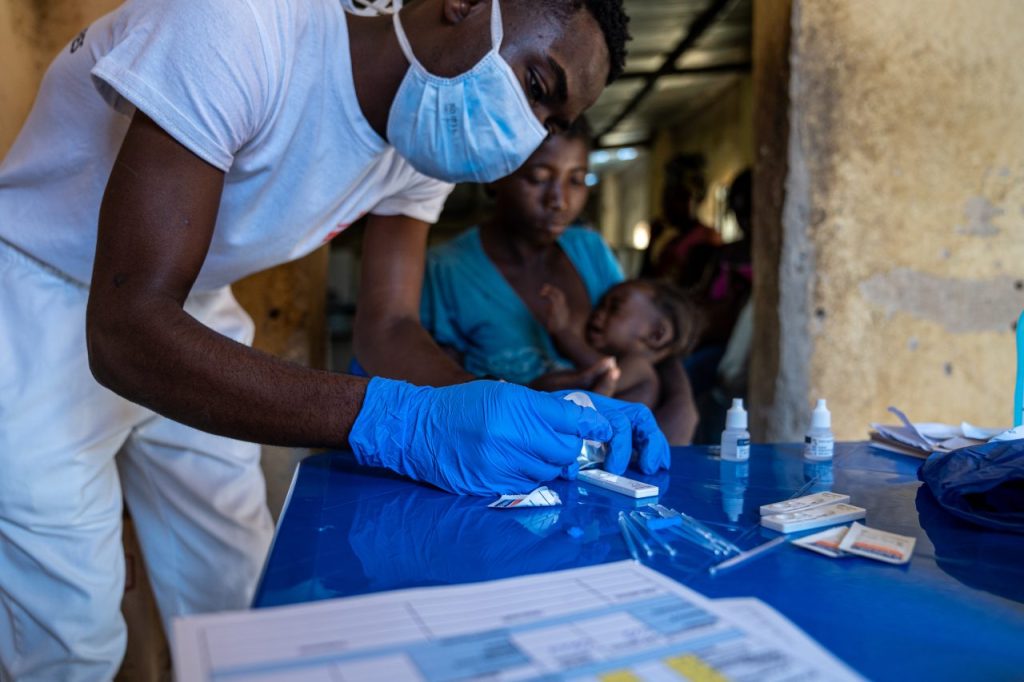
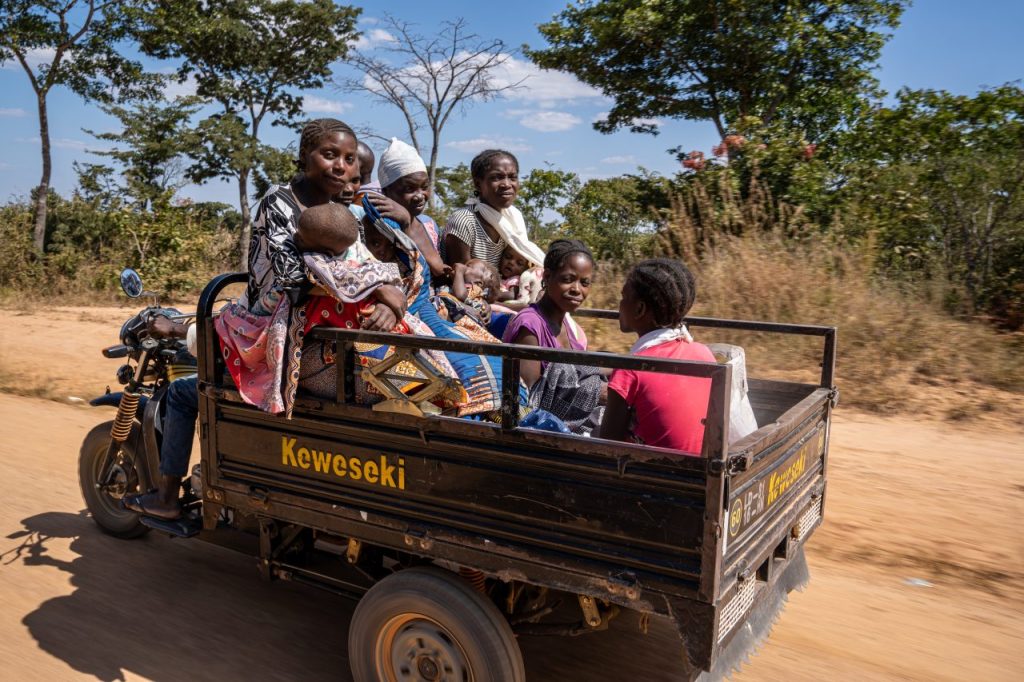
Supporting children’s recovery in health facilities
Children with moderate and severe acute malnutrition were enrolled in MSF’s outpatient program, where they received ready-to-use therapeutic food, known as plumpy’nut, as well as kits including blankets, cups, and soap. Children in a critical state were admitted to the inpatient malnutrition unit in the hospital.
MSF treated 710 children for acute malnutrition, including two-year-old Rosa.
Psychologists like Isabel try to re-establish mobility, cognition, confidence, and the mother to child bond after a child has been in a critical condition in the hospital for an extended period. “She is a lot better, and I am very happy,” said Paulina Kassombo, Rosa’s mother.
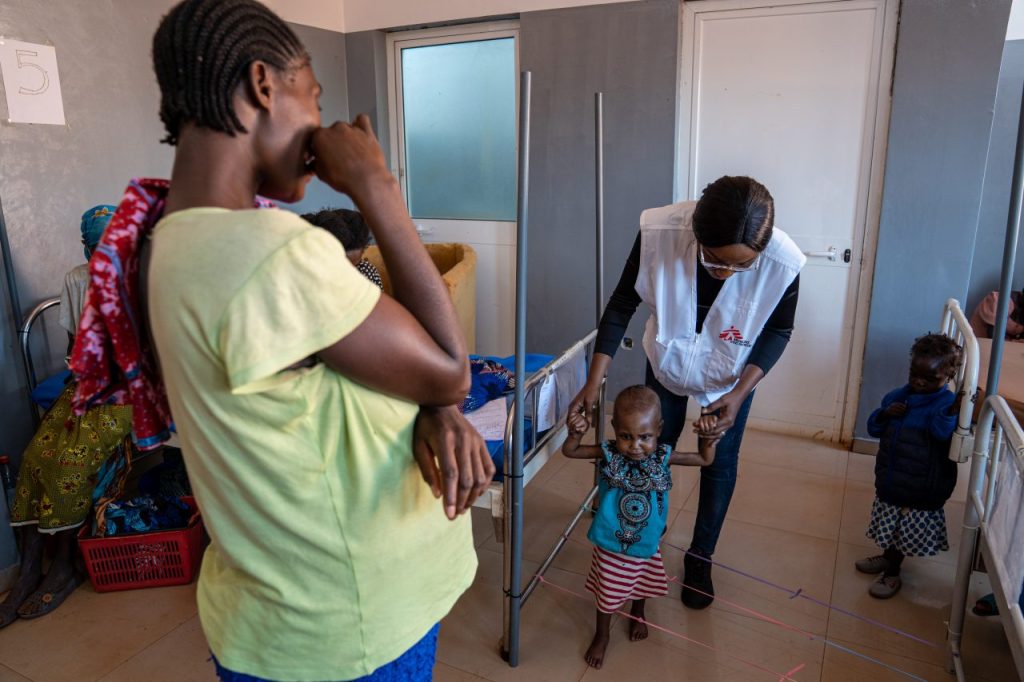
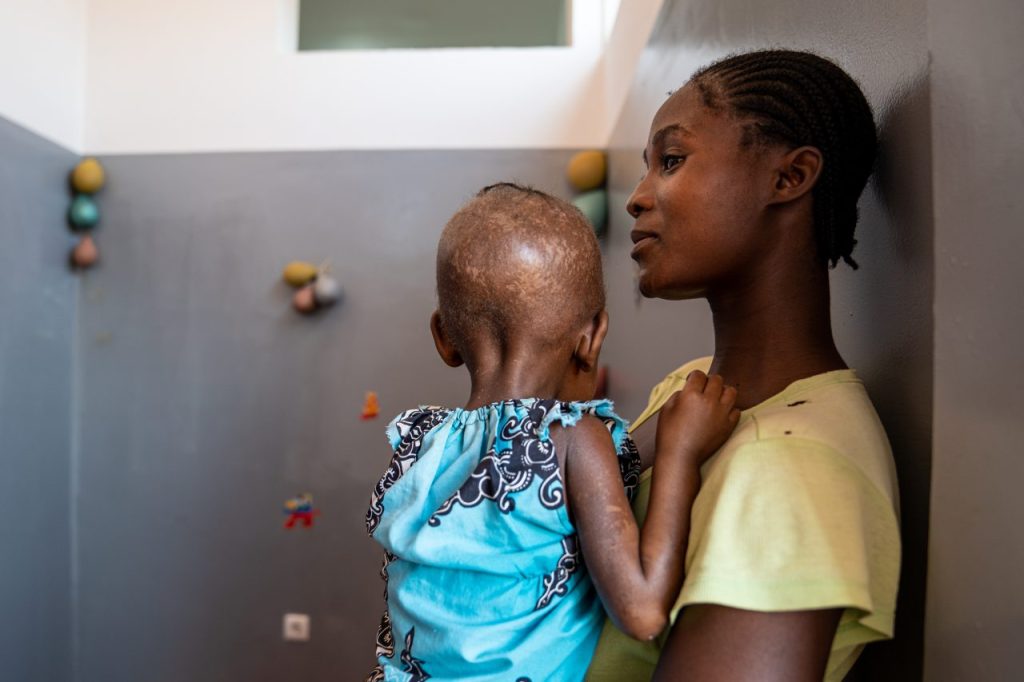
Building capacity and structures for the long run
Beyond the medical work, MSF’s logistics and water and sanitation teams also rehabilitated health structures and waste zones, and completed other construction projects, including re-building a crucial bridge that had been destroyed with the use and connected more than 10 remote villages with the health centre in Galangue.
As part of the response in Angola, MSF conducted trainings with dozens of Angolan staff, staff from the Ministry of Health, and community health workers at various health facilities, focussing on malaria, malnutrition and the management of patients in critical condition.
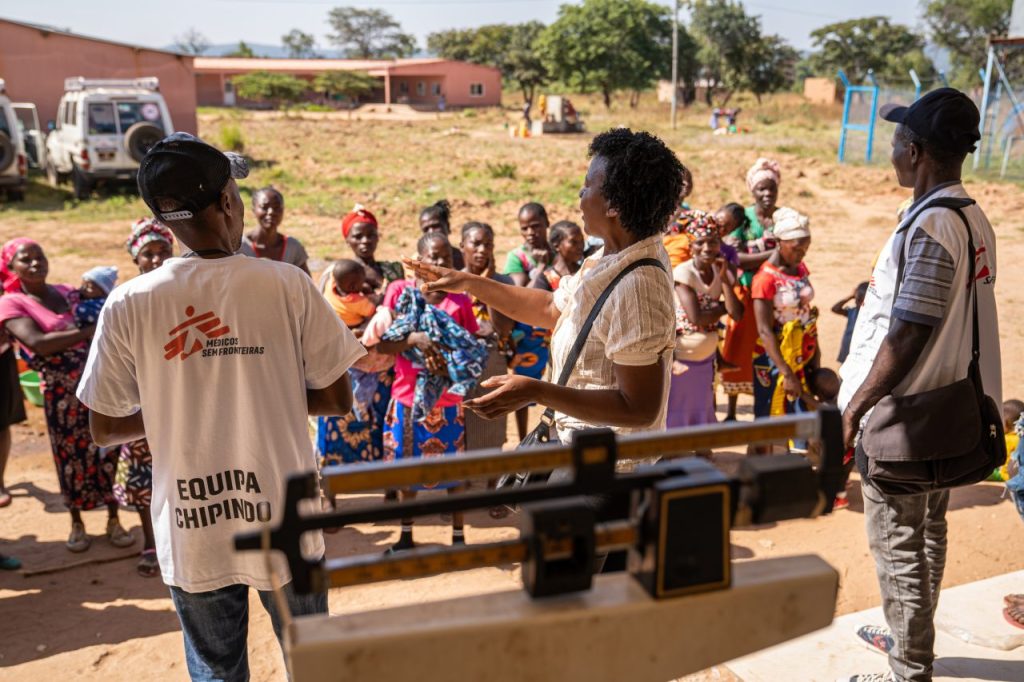
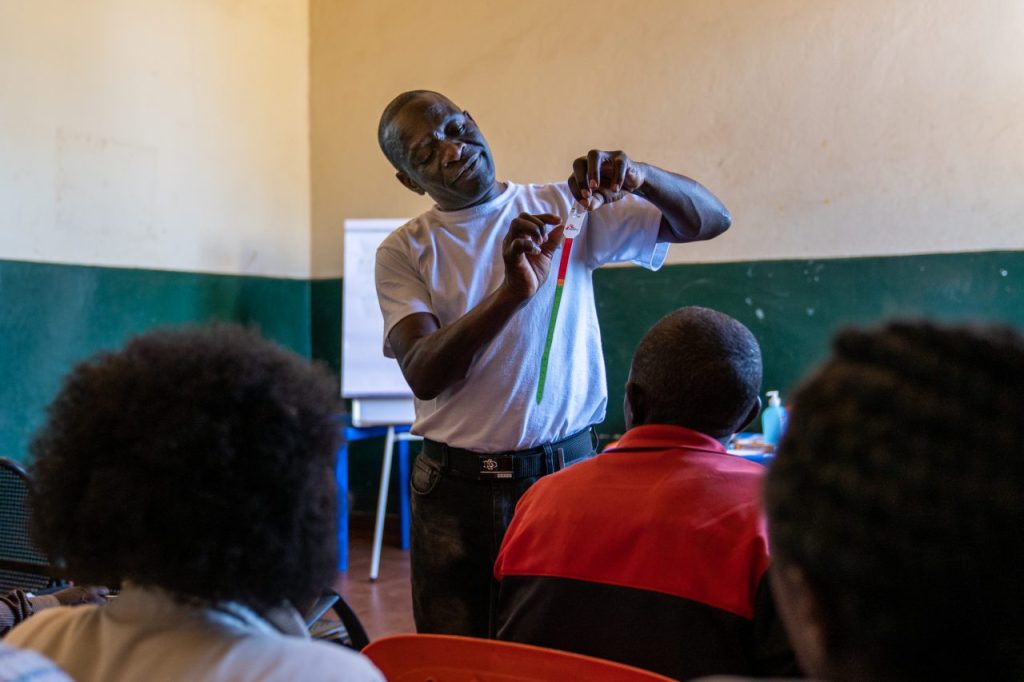
Following three consecutive years of severe drought in Angola and soaring food prices, in 2021 UN agencies alerted that these issues could have an impact on child malnutrition, particularly in the southern provinces of the country. MSF carried out assessments and started medical activities in several locations in Angola in 2022.
In Huíla, rapid nutritional assessments did not show an alarming rate of malnutrition and drought was not as serious as predicted. However, malaria rates were very high and remote communities faced many challenges in accessing healthcare. In this province, MSF teams completed mobile clinics in late May and handed over its support to local health facilities to the Ministry of Health in June. As part of this handover, MSF donated supplies, motorbikes, and motorised tricycles to ensure that referrals of patients can continue.
MSF is still present in the province of Benguela since April 2022.











